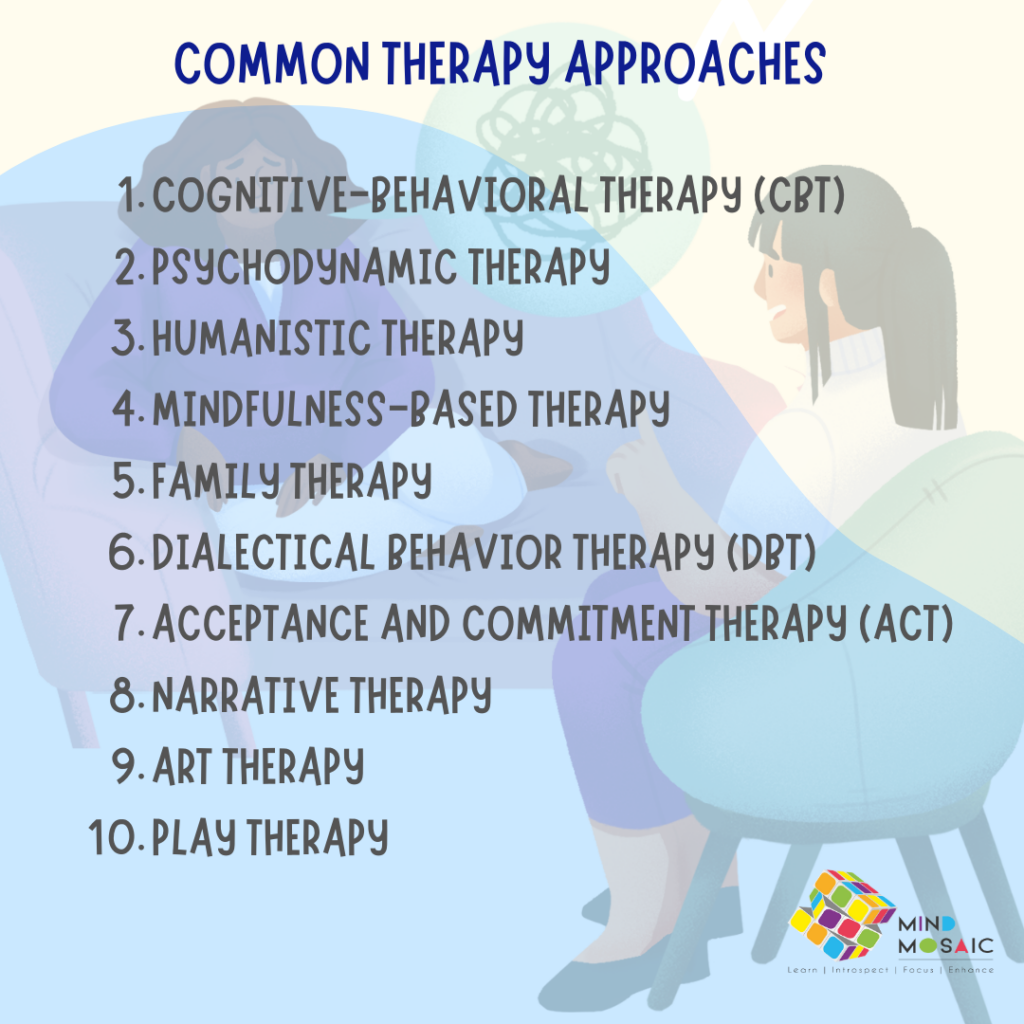A therapy approach is a structured and systematic method used by therapists to address mental, emotional, or behavioral issues in individuals or groups. These approaches provide a framework for understanding and treating psychological challenges. Different therapy approaches employ various techniques, strategies, and principles to help clients improve their well-being, cope with difficulties, and achieve personal growth. Therapists often choose an approach based on the client’s needs, the nature of the issue, and their own expertise.
Here are some of the common therapy approaches:

- Cognitive-Behavioral Therapy (CBT): Focuses on identifying and changing negative thought patterns and behaviors.
- Psychodynamic Therapy: Explores unconscious thoughts and emotions to understand their impact on behavior.
- Humanistic Therapy: Emphasizes personal growth, self-acceptance, and the client’s capacity for positive change.
- Mindfulness-Based Therapy: Utilizes meditation and mindfulness techniques to increase awareness and reduce stress.
- Family Therapy: Addresses relational dynamics and communication patterns within families.
- Dialectical Behavior Therapy (DBT): Combines CBT with mindfulness and emotional regulation techniques, often used for mood disorders.
- Acceptance and Commitment Therapy (ACT): Encourages acceptance of thoughts and feelings while committing to positive actions.
- Narrative Therapy: Helps clients reframe their life stories to promote empowerment and resilience.
- Art Therapy: Uses creative expression to facilitate healing and self-discovery.
- Play Therapy: Utilizes play to help children express themselves and work through emotional difficulties.
The effectiveness of each approach varies depending on the individual’s needs and preferences.
